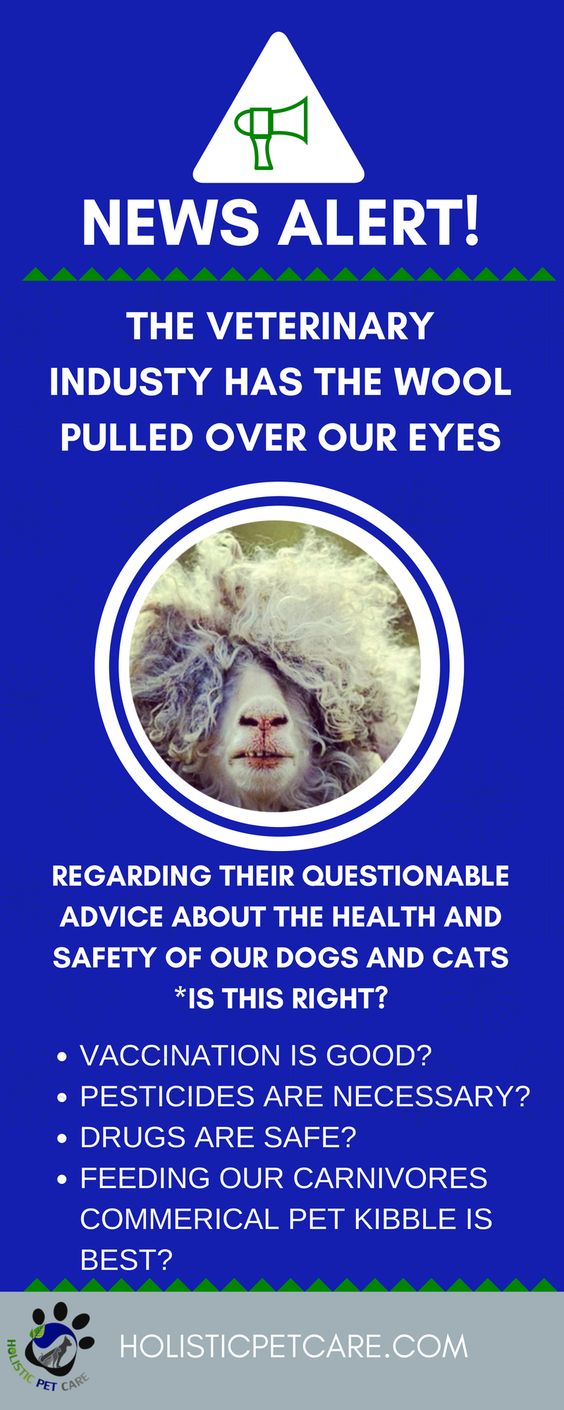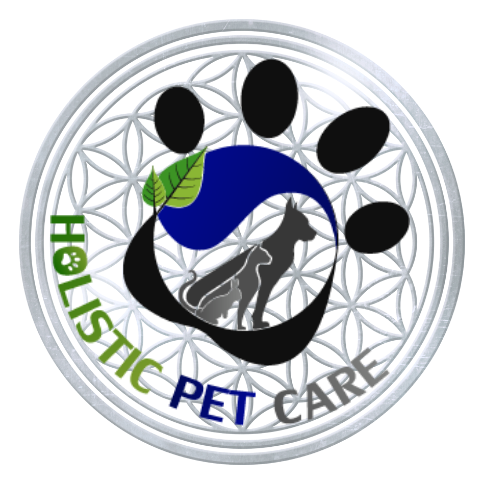Is Conventional Veterinary Care Best for Pet Health?
Posted by Rhonda Jewel on Apr 10, 2017
Pet owners around the country have become dependent on using conventional veterinary care for every health issue that comes up with their pets. However, many people of today are finding that the drugs, chemicals and over-vaccination program offered by their vets are not really giving their pets quality health care; in fact the opposite might be true.
We must ask ourselves the question:
Is conventional veterinary care compromising the health of our pets?
We are at a time in pet health awareness when many are coming to the realization that there may well be a problem with the veterinary health care system as we know it, as many pet owners are becoming more educated about natural pet care.
In veterinary school very little time is spent in learning true nutrition for animals. What vet students are taught is coming from industry reps of pet food companies. They sell and “prescribe” their processed foods, rather than information on how to keep pets healthy using good nutrition and alternative treatments.
Although conventional veterinary treatment is excellent at diagnostics, it mostly treats our pets’ symptoms and does not address the root cause. Your vet and his team are good at providing answers to the question: What’s wrong with my pet?
By utilizing physical exams, lots of blood work, x-rays and other diagnostic tools they can find out what is causing the health issue. Using methods like surgery, antibiotics, anti-inflammatory drugs and other medications they then try to alleviate the problems.
However, they often don’t actually get down to finding out the cause of the illness or disease.
Although they require much time, money and research, these diagnostics can be effective in most cases to discover what is wrong. A prescription for antibiotics or steroids can help your dog or cat feel much better right away. Usually, however, the symptoms return, much worse than they were before the treatment. This method of suppressing the symptoms can lead to a much more serious illness. The result is called modern medicine, a very sad situation for both pets and humans.
Most veterinarians sincerely feel that what they are prescribing is best for our pets. They have no idea that some of the medicines and vaccinations they recommend can be very harmful. This is what they learned in vet school and it is God’s word to them.
After all, they do take the following Hippocratic Oath:

"I will follow that system of regimen which, according to my ability and judgment, I consider for the benefit of my patients, and abstain from whatever is deleterious and mischievous".
We have all heard the words: “First, do no harm”.
But do they cause harm, albeit unintentional?
Vaccines, selling commercial diets, spaying/neutering, drugs, and both necessary and unnecessary surgeries are the way our veterinary practices make a regular income. Most of them have a huge overhead and lots of support staff, modern equipment leases, insurance requirements and office mortgages to support.
But the question goes back to this: Are they doing what is best for our pets, or are they often more focused on finances?
Dr. Pitcairn's Complete Guide To Natural Health For Dogs and Cats states this:
"In our eagerness for quick and easy solutions, we seize on a certain drug that may just cover up symptoms without addressing underlying causes. For example, synthetic cortisone is powerful enough to stop a wide variety of symptoms in their tracks, but inside, the disturbance continues unseen. Animals vigorously treated with such drugs (apparently successfully) go on to develop another condition within a few weeks or months. The suppressed disorder has simply gone on to create more serious inroads in the body”.
Keep in mind that when your allopathic veterinarian gives you advice about your beloved pet, you are most likely only receiving partial information and not all the alternative/natural/ holistic treatment protocols that are available for his or her health issue. The vet is only going to tell you what he or she knows about from their training.
Obviously, your vet is not intentionally harming your best friend by not knowing all the options, but the problem with modern vet practices is that they are just too busy to learn other alternative, safer healing protocols.
So what is true natural, holistic and naturopathic pet health care all about? Can these natural alternatives be the entire solution to a complete pet health care program?
What then is the big difference between conventional veterinary treatment and alternative pet care?
The traditional is more about treating disease while the natural approach is about nurturing health. Of the many ways that we can treat our pets, how do we choose which is the best approach to treat a specific illness or ailment?
After a lifetime of experience and research, I feel strongly that the only choice we can make in good conscience is the natural approach.
Again, Dr. Pitcairn, the well-known homeopathic vet, agrees:
“Health is not necessarily just the absence of disease, it is rather a universal good condition on all levels--physical, emotional and mental. Naturopathic health is a distinctively natural approach to health and healing that recognizes the integrity of the whole animal.”
As we have seen, our conventional health care system is based on selling drugs and dog food, as well as making money on expensive procedures and vaccinations programs. We are at a time in history where if we do not make a change, sickness is going to be more common than health, with not only our pets but all of humanity as well.
This is why many health conscious individuals are turning to holistic and natural treatments for our pets and ourselves. Naturopathy and homeopathy have been making a powerful comeback in recent years.
Using the guidance of an Animal Naturopath or a Holistic Veterinarian is becoming a more and more popular choice with pet owners.
However, it all comes back to keeping your dog or cat healthy from the very beginning with a higher vibration lifestyle. Which includes a species appropriate diet, minimal vaccinations, non-chemical pest control and following the natural laws of health.

